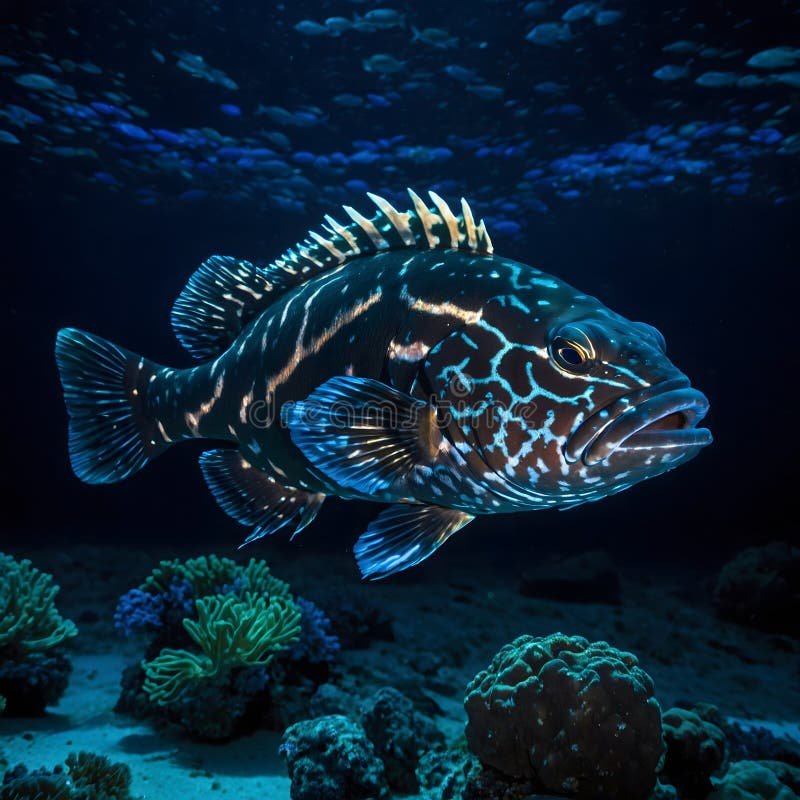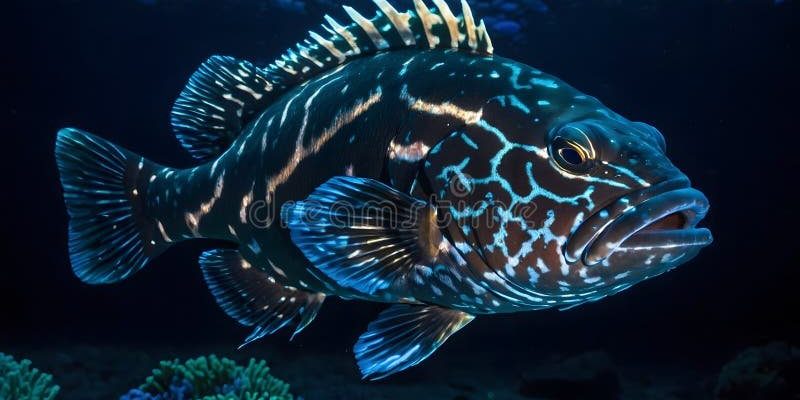
Grouper fish belong to the family Epinephelidae, and they come in various shapes and sizes, some weighing hundreds of pounds! Think of them as the gentle giants of the sea. These fish have adapted to their environments in remarkable ways over millions of years. Understanding their evolutionary journey helps us appreciate not only the grouper but also the intricate web of life beneath the waves.
The Origins of Groupers
Groupers have a long evolutionary history rooted in ancient oceans. Fossil records suggest that their ancestors swam the seas around 50 million years ago, during the Eocene epoch. During this time, the world was a very different place, with lush tropical environments where groupers thrived. Imagine the ocean teeming with a variety of marine life, all evolving in response to changing climates and ecosystems.
The early ancestors of groupers were smaller and likely hunted different prey than today’s grouper species. Over millions of years, they adapted to their environments, growing larger and more robust. This evolution allowed them to become effective hunters and thriving members of their ecosystems. As the oceans changed and new species emerged, groupers found their niche among the coral reefs and rocky substrates.
One of the most fascinating aspects of grouper evolution is their unique adaptation to hunting. They developed powerful mouths and suction abilities that enable them to capture prey quickly. This advancement has allowed them to thrive in various habitats, from shallow reefs to deeper waters.
Physical Adaptations: What Makes Groupers Unique
You might be wondering what physically distinguishes groupers from other fish. Well, here’s the thing: their robust bodies and large mouths are just two of the many features that make them unique. Grouper species can be quite different, but they all share some common traits. Their thick bodies and strong jaws make them efficient predators, capable of swallowing prey whole.
The coloration of groupers also plays a significant role in their survival. Many species have striking patterns that help them blend in with their surroundings, making it harder for both predators and prey to spot them. Think of them as the camouflaged ninjas of the sea!
Another interesting adaptation is their social behavior. Groupers often form small groups, which can provide safety in numbers. They also exhibit territorial behavior, defending their chosen hunting grounds from intruders. This social structure is vital for their survival, especially in areas with high predator populations.
Habitat and Distribution of Groupers
Groupers can be found in various marine environments, from shallow reefs to the depths of the ocean. Their distribution spans across warm waters in the tropics and subtropics. This adaptability is key to their evolutionary success. You’ll often find them lurking around coral reefs, rock formations, and even in mangroves.
Coral reefs serve as crucial habitats for groupers, providing both food and shelter. These vibrant ecosystems support the diverse diets of groupers, which include smaller fish, crustaceans, and even octopuses. Imagine a grouper patiently waiting in the shadows, ready to dart out and snatch its next meal!
Climate change and overfishing pose significant threats to grouper populations and their habitats. As ocean temperatures rise and reefs degrade, groupers face challenges that could impact their survival. Conservation efforts are increasingly vital to protect these beautiful fish and their ecosystems.
Groupers and Human Interaction
As you might know, groupers are not just important to marine ecosystems; they also play a significant role in human culture. For centuries, they’ve been a popular target for both commercial and recreational fishing. Their delicious, firm flesh makes them a prized catch for many anglers, but this popularity has led to concerns about overfishing.
Sustainable fishing practices are crucial for ensuring the longevity of grouper populations. Many fishing communities have adopted regulations to prevent overfishing and protect these valuable fish. This includes size limits, seasonal closures, and designated no-fishing zones. Here’s a thought: taking care of grouper populations ensures that future generations can enjoy this amazing fish too.
Additionally, groupers are important to tourism, especially in regions known for diving and snorkeling. Their unique colors and behaviors attract underwater enthusiasts, contributing to local economies. Promoting eco-friendly tourism can help protect grouper habitats and educate people about their significance in marine ecosystems.
The Future of Groupers: Conservation Efforts
As we approach the future, the survival of groupers depends on effective conservation efforts. Numerous organizations are working to protect grouper habitats and ensure sustainable fishing practices. These initiatives include habitat restoration, research programs, and public awareness campaigns.
One fascinating example is the role of marine protected areas (MPAs) in conserving grouper populations. MPAs allow ecosystems to thrive without human interference, helping grouper populations recover and grow. This creates healthier oceans and benefits both wildlife and fishing communities.
We each have a part to play in protecting marine life, including groupers. Supporting sustainable seafood choices, reducing plastic waste, and advocating for ocean conservation can make a significant difference. It’s essential to remember that the health of our oceans directly impacts our lives.
The evolutionary journey of the grouper is a testament to the resilience and adaptability of marine life. From their ancient origins to their vital role in today’s ecosystems, groupers are more than just fish; they are an integral part of our ocean heritage. Understanding their evolution helps us appreciate the delicate balance of life in our oceans and the importance of protecting it.
As we continue to explore and learn about these remarkable creatures, it’s clear that the survival of groupers—and many other marine species—depends on our collective efforts. So, whether you’re a fish enthusiast, a diver, or simply someone who loves the ocean, let’s work together to ensure that groupers thrive in the waters for generations to come.

